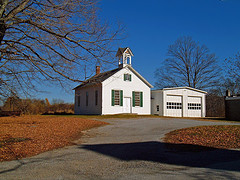 “One size fits all” is not an adage that applies to social issues. It’s especially true in the case of education. Most of the issues we at HUMANE EXPOSURES cover in our books are affected by access to quality education. From the homeless issues presented in downTownUSA: A Personal Journey with the Homeless to the inside view of female imprisonment shared in Maggots in My Sweet Potatoes: Women Doing Time, we see education as a frequent backbeat to the overall story.
“One size fits all” is not an adage that applies to social issues. It’s especially true in the case of education. Most of the issues we at HUMANE EXPOSURES cover in our books are affected by access to quality education. From the homeless issues presented in downTownUSA: A Personal Journey with the Homeless to the inside view of female imprisonment shared in Maggots in My Sweet Potatoes: Women Doing Time, we see education as a frequent backbeat to the overall story.
Thus it is with great interest that we follow news of innovation in the realm of education. Unfortunately, the news is not always good. Last Tuesday, the Secretary of Education Arne Duncan announced the most recent states to win the “Race to the Top” competition. While that would seem to be good news, there do seem to be a few troubling details. There is an odd geographic footprint to the awards distributed by this Obama Administration’s signature educational initiative.
You see, with the exception of Hawaii, all of the states that were awarded major grants under the program are east of the Mississippi, and the majority of them hug the eastern seaboard. Oddly enough, my home state of Louisiana, which was considered a shoe-in for funding, has received nothing under the program.
Some good arguments are made by these states that chose not to vie for the funds, as Sam Dillon reports for The New York Times:
Educators in many of the states that did not win, or did not even participate in the competition — which includes every state from Tennessee west to the Pacific — said they were hamstrung from the outset.
They said the competition’s rules tilted in favor of densely populated Eastern states, which tend to embrace more the ideas that Washington currently considers innovative, including increasing the number of charter schools and firing principals in chronically failing schools.
But those rules have seemed a poor fit for the nation’s rural communities and sparsely populated Western regions, experts said.
In small towns, for example, there is often just one school, so setting up a parallel charter school might not be feasible. It can also be hard to attract principals to such communities. And many of rural states do not have the resources or staff to write sophisticated grant applications.
While adding funding to our strained school system is something that is obviously needed, the needs and resources of the communities in question need to be evaluated before we declare that something is “the right choice,” for everyone. One size does not fit all.
Source: “Eastern States Dominate in Winning School Grants,” The New York Times, 08/24/10
Image by Nicholas T., used under its Creative Commons license.
Visit Us on Facebook: Humane Exposures Publishing , downTownUSA, Maggots in My Sweet Potatoes, It’s More Expensive To Do Nothing

 So many issues trace back to childhood. The opportunities, the lack thereof, early life traumas, and all the other factors that can impinge on early life, create the building blocks from which the adult is sculpted. Educational opportunities are particularly key, especially during the early years when the mind is so hungry for knowledge.
So many issues trace back to childhood. The opportunities, the lack thereof, early life traumas, and all the other factors that can impinge on early life, create the building blocks from which the adult is sculpted. Educational opportunities are particularly key, especially during the early years when the mind is so hungry for knowledge.







